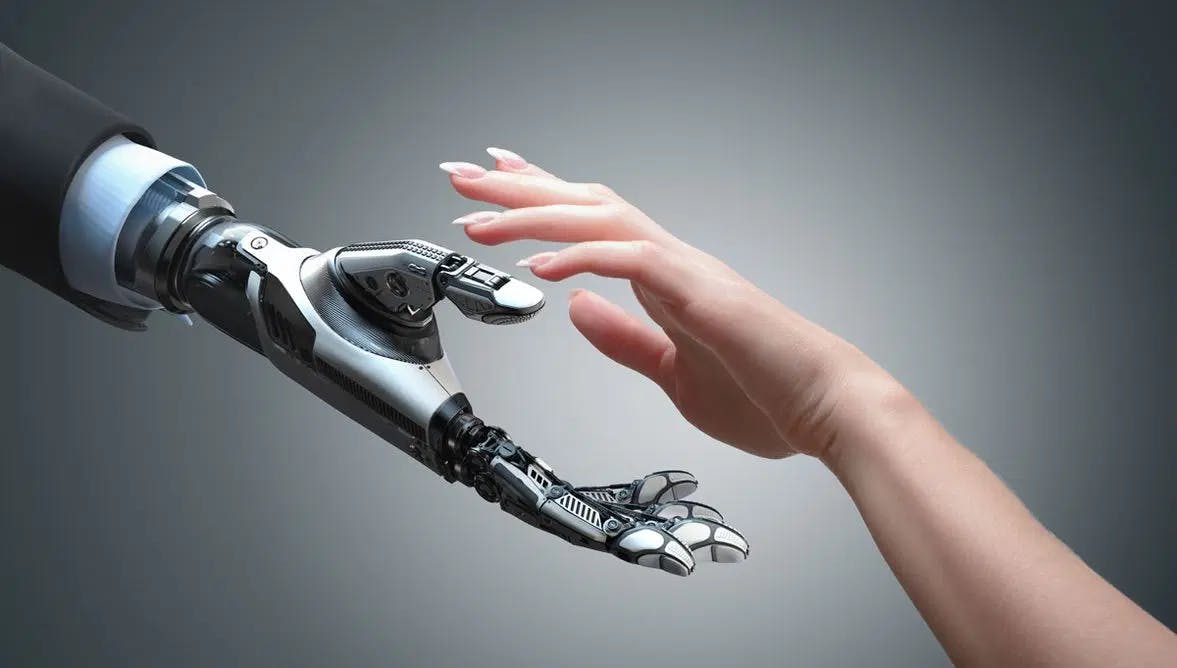
Creating Brand Trust With AI in IoT Integration
Michael Blum • Oct 25, 2021
3 minutes
Among emerging technologies, there’s a culture of mistrust around artificial intelligence (AI) in Internet of Things (IoT) devices. IoT with AI integration is in nearly every home device on the market. From Google to Apple to Amazon, the technologies surrounding our lives provide sophisticated experiences.
From smartphones, smart TVs, and smart homes to smart cars and smart security systems, we are more dependent on technology now than any other time in human history. But in this world of innovation, there’s a shadow of uncertainty for how AI is affecting our privacy, control, and business responsibilities.
Almost every major brand is now using AI in some capacity to serve and collect big data. As privacy concerns grow, organizations need to cultivate trust in their brand’s AI capabilities. Ironically, it’s AI itself that can help seed that trust.
Mistrust in Technologies
There’s no shortage of reasons for why people are concerned about what information AI is gathering and for what purpose. Internet Society reported that 63% of people surveyed find connected devices “‘creepy’ in the way they collect data about people and their behaviors.” Users attributed the creepiness factor to IoT devices gathering and using information without permission. One example is when advertisers misuse data that consumers thought was being collected for a different purpose.
Globally, consumers have shown concern about the ethics of this practice. Almost a third of survey participants revealed they are deterred from purchasing a smart device because of mistrust in how their data is used.
In similar findings, researchers from WMG and Computer Science at the University of Warwick conducted a survey of UK consumers designed to measure the adoption and acceptability of smart home devices. They focused on attitudes toward awareness, ownership, experience, trust, satisfaction, and intention to use these technologies. They found that people aren’t convinced that their privacy and security will not be at risk when they use smart home devices.
Privacy and security are the primary reasons consumers won’t purchase smart technologies. But 96% of Americans own cellphones, so the necessity and dependency on some type of AI devices with IoT integration still supersede privacy concerns.
Businesses need consumers to trust them. Using brand experience can help build relationships with customers while relying on big data to help make sound financial decisions.
Creating Trust in AI Systems
Sowing the seeds of trust may appear a Sisyphean effort for businesses reliant on data to improve customer service and compete in a tough market. But there are ways to instill trust in AI-based technologies.
The best way to salve the mistrust is by providing services and solutions that feature human interaction. Consumers are willing to invest in companies where they feel valued and understood. Conversations about family, weather, or work— even trivial ones— can create bonds of trust and brand loyalty in a way that an automated service can’t. That’s because customers crave intimacy between themselves and the brand.
The need for connecting human-to-human is as necessary as ever, especially during the coronavirus pandemic. There are stories of customer service agents going out of their way to deliver an above-and-beyond customer experience from companies like UPS and Zappos.
However, despite the human connection, organizations that sell devices with AI in IoT integration rely heavily on collecting data. It’s ironic that what’s gathered in devices like Siri, Alexa, and Nest delivers uniquely tailored and highly customized experiences.
The intimacy humans are developing with their smart devices is a double-edged sword of trust and mistrust.
That’s because intimacy begets brand transparency. More and more global businesses are transparent about what they do with the data they collect. Even if the details are in the fine print, consumers want to know how much an organization can protect their privacy and security. This transparency is not only ethical, but in many countries, it’s also the law for companies to disclose data collected from smart devices.
As AI innovations continue, humans will need to learn how to build intimacy and trust with these advanced technologies. Scientists are already observing how to do just that.
One such study is published in the journal Scientific Reports. Dr. Celso de Melo is a computer scientist with the U.S. Army Combat Capabilities Development Command's Army Research Laboratory at CCDC ARL West in Playa Vista, California. He collaborated with researchers from the University of Japan for a study on how people react to AI-controlled robots. They found that emotional expressions can influence human-AI cooperation.

Source: Shutterstock.com
De Melo says, “Autonomous machines that act on people's behalf are poised to become pervasive in society; however, for these machines to succeed and be adopted, it is essential that people are able to trust and cooperate with them.”
That trust extends to smart systems. As the study shows, communicative expressions like voice and tone cues can lead to human cooperation with AI systems. Many IoT devices with AI are loaded with sentiment analysis that interpret and establish human communication.
Another study focused on how people’s attachment styles affect their trust in AI. Key findings show:
- People's attachment anxiety predicts less trust in artificial intelligence.
- Enhancing attachment anxiety reduces trust in artificial intelligence.
- Conversely, enhancing attachment security increases trust in artificial intelligence.
Professor of Psychology, Omri Gillath, who led the study with an interdisciplinary team from the University of Kansas, says, “Most research on trust in artificial intelligence focuses on cognitive ways to boost trust. Here we took a different approach by focusing on a 'relational affective' route to boost trust, seeing AI as a partner or a team member rather than a device.”
The study is published in the journal Computers in Human Behavior.
A partnership with AI technologies can help enhance customer experience and trust. Consumers have grown to enjoy the benefits of smart devices, smart programs, and smart solutions designed around AI. But as AI has penetrated so much of our lives, how can companies develop this trust with their brands?
Codazen Solutions
Organizations can develop trust with their customers when they take a strategy-driven approach. Codazen knows about building trustworthy AI solutions. This is why some of the world’s most influential brands trust us with their smart products.
We handle big data responsibly and ethically. Our team of data scientists embed with clients to help them develop AI-based solutions that can humanize customer service, create brand trust, and develop customized user experiences. Using big data, we’re able to craft services and products that are helpful and relevant to consumers.
Our team uses machine learning to dramatically upgrade the customer service experience. Your customers’ trust in your brand is priceless. We value it too and we can help you leverage technology ethically to preserve and protect that delicate relationship.
Contact us to learn more about how our capabilities can work for your smart products and services.